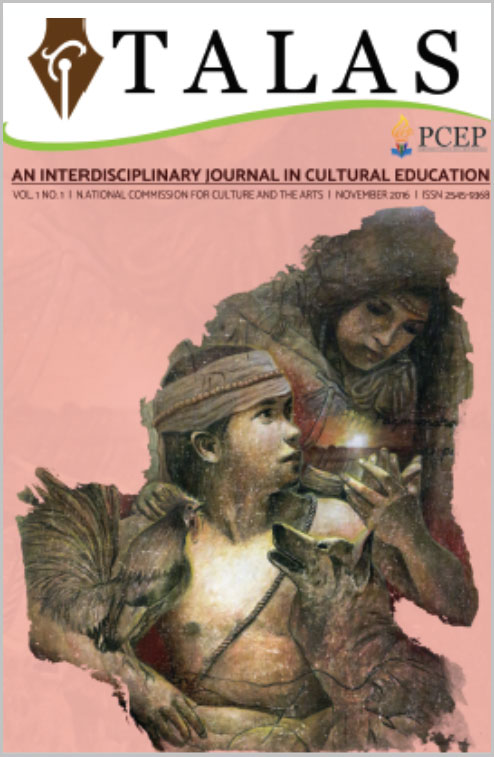Home > Talas Journal > ADVANCING CULTURE-BASED EDUCATION: AN OPERATIONAL MODEL IN PARACELIS, MOUNTAIN PROVINCE
in Cultural Education
ADVANCING CULTURE-BASED EDUCATION: AN OPERATIONAL MODEL IN PARACELIS, MOUNTAIN PROVINCE
University of the Philippines Los Baños
Abstract
One feature of K+12 or Republic Act 10533 is the Mother Tongue Based Multilingual Education (MTBMLE), which was originally institutionalized through DepEd Order (DO) No. 74 series of 2009. It was further operationalized by DO No. 16 series of 2012 and DO No. 28 series of 2013. On top of these, there is one more compelling document that advances emancipatory education, linguistic justice, and cultural nationalism. This is DO No. 62 series of 2011 or the National Indigenous Peoples Education Policy Framework (IPEd). It is “an instrument for promoting shared accountability, continuous dialogue, engagement, and partnership among government, indigenous communities, civil society, and other education stakeholders” (DepEd, 2011, p. 4).
My research is qualitative in nature. As such, it is grounded on an initial work in two high schools in Paracelis, Mountain Province: Anonat National Agricultural and Vocational High School and Paracelis National High School. This study integrates insight, foresight, lessons, challenges, and recommendations into a model that can be utilized in the implementation of IPEd. Particularly, it (1) narrates my engagement with the said schools as regards making sense of and attempting to implement the said policy, (2) reviews apparent cultural patterns and/or use of space as the foundation of the model (dap-ay, ampakan, and pattong); and (3) discusses the details of the proposed model. My data set includes short message sending (SMS), summary of the focus group discussions (FGD) with teachers and students, personal notes of interviews and conversations with community leaders, documents secured from DepEd, among others.
I believe that this study is timely and significant because it is alongside the developmental goals of the National Commission on Culture and the Arts: (1) establishment of culture as pillar for sustainable development, (2) advancement of creativity and diversity of artistic expression, and
(3) promotion of the sense of nationhood and pride in being Filipino through culture and arts. Besides, it responds to the demands of the internationalization of education while maintaining and affirming the indigenous identities of learners across levels from the ASEAN region. Lastly, it helps “ensure inclusive and equitable quality education and promote lifelong learning opportunities for all” (Sustainable Development Goal No. 4).
About the Author
Eric Joyce DC. Grande is an assistant professor at the Department of Humanities, College of Arts and Sciences, University of the Philippines Los Banos, where he handles basic English courses, technical writing, journalism, sociolinguistics, and communication theory and research. Since 2013, he has been mobilizing an emerging network of faith communities in Kalinga and Mountain Province to support the ongoing education reform known as Kto12, particularly the Senior High Schools (SHS). At present, he is a CHED Kto12 Transition Program Graduate Scholarship grantee.


